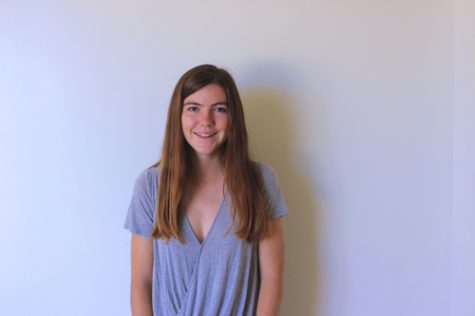Makine Ecology visits local tide pools
May 9, 2017
Not many schools get to conduct research at the tidepools weekly. Alexandra Holtz’s Marine Ecology classes are conducting research projects in which they gather data from the tidepools in Picnic Cove at Heisler Park every block day in order to test the group’s hypotheses.
“The research projects are centered around the health and balance of our tide pools and look at various factors in our tide pools that may affect life development,” said Holtz.
The classes are split into groups based on the type of project they wish to do. There are three levels of the project, team leaders determine which level project a group will do and the group determines the hypothesis they wish to test.
“There are three project levels, differentiated by rigor and difficulty. In the first level, students are only required to complete surveying. In the second level, students are asked to look at another variable in relation to the surveying, such as pH or dissolved oxygen. In the third level, students are required to look at various factors of the tide pool and bacteria count, which required the growth of bacteria,” said Holtz.
Groups have a variety of possible hypotheses. For example, a group could determine how PH affects bacterial growth, how dissolved CO2 affects the presence of life or how the tides affect the anemones in the tidepools.
“Our project will be analyzing how the amount of life in the tidepools affects the amount of dissolved oxygen,” said senior Jaden Christiansen.
Students are encouraged to research a hypothesis that they are curious about. Many students have expressed interest in researching the effects of climate change on their local tidepools. These projects will include analyzing the acidity or dissolved CO2 concentration on the tidepools.
“The goal of our project is to determine how PH affects bacterial growth. We are trying to examine whether or not acidic water will foster bacteria growth,” said senior Lauren McDonnell.
In early June, students will turn in research papers on their projects. The students have been learning how to conduct research and find reliable sources. There are many tricks to proper research that most high school students are unaware of.
“I have learned to use Google Scholar and narrow down searches to find credible information for my research project,” said Christiansen.
The students are all extremely excited for their field trips to the tidepools. Every block day, students will walk to the tidepools to collect their data. Some students will be collecting water samples to analyze, while others will be surveying using a quadrat for measurements. They will spend about 45 minutes at the tidepools before returning to class to analyze their research.
“I am excited to take a break from traditional classroom learning to go down to the beach!” exclaimed Christiansen.
This is the first time that the marine ecology classes will be doing a full blown research project. Although students are in groups when collecting data, the research papers are individual assignments.
“My primary goal for the research project is twofold: first to expose my students to research projects and the scientific process and scientific writing, and my goal was to teach students skills I think are valuable. These skills include problem solving and resiliency, online research techniques, writing scientifically, reading scientific articles and effective presentation skills,” said Holtz.
The students are excited that they have the opportunity to explore something of interest to them. Furthermore, they get to do so at the beautiful tidepools!
“My other goal is to move away from traditional memorization and instead move towards application—in which students feel like they are learning material for broader reasons. We are also located so close the tide pools that it would be a shame not to take advantage of this opportunity,” said Holtz.






